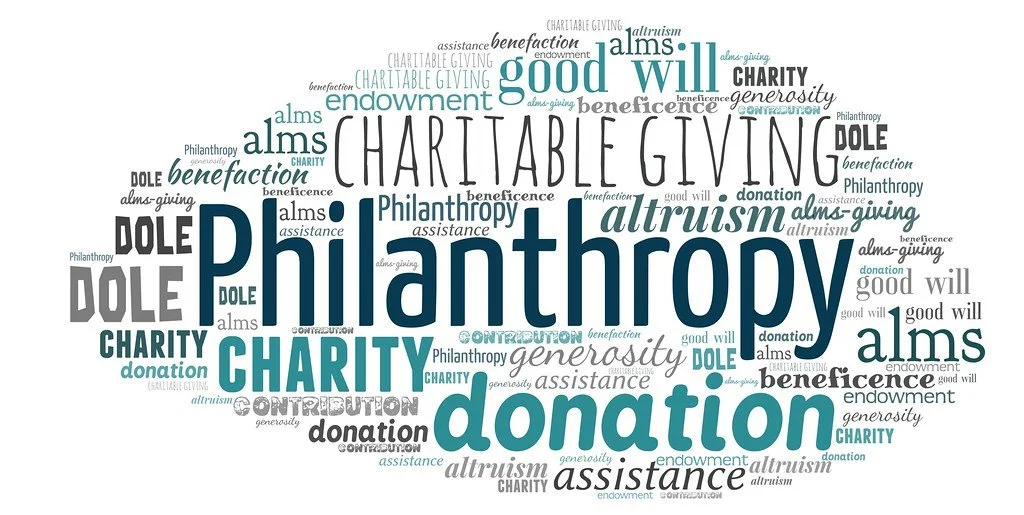Indian Billionaires in USA donate little to COVID-19 charities
Today, Reed Hastings, founder and chief executive of Netflix, announced that he and his wife are donating $120 million to be split among three organizations in America: two black colleges,.Morehouse and Spelman, and the United Negro College Fund. The funds will pay for 200 students to study at these colleges each year, for at least the next decade. Hastings, with an estimated net worth of $4.8 billion largely due to his 1.3% ownership of Netflix stock, had already donated several hundred million dollars to charity.
Hastings, Microsoft founder Bill Gates and Amazon founder Jeff Bezos are among the 50 wealthiest Americans donating generously to tackle the coronavirus as well as help those most impacted by it, mainly the Blacks and Hispanics who also face racial injustice and inequality.
In sharp contrast, none of the seven Indian billionaires on the Forbes list of 400 wealthiest Americans have announced any major donations since the COVID-19 outbreak – or even earlier. They have all gained much from America. For example Rakesh Gangwal, whose fortune comes from co-founding India’s budget airline IndiGo, was earlier chief executive of U.S. Airways. He started his career at United Airlines, after earning an MBA from Wharton. A resident of Florida, Gangwal, 66, is estimated to have a net worth of $2.2 billion.
The other six Indian billionaires made their fortunes in America, after getting advanced degrees. Jay Chaudhry, a serial entrepreneur for instance, has an estimated net worth of $6 billion, due to his 49% ownership of Zscaler, a cybersecurity firm. Migrating to the U.S. in 1980, after a degree from Benares Hindu University, he got his MBA and MS degrees in computer and industrial engineering from the University of Cincinnati.
The remaining Forbes’ list Indian billionaires are Aneel Bhusri, co-founder of Workday, an online human resources service; Brian Sheth co-founder of investment firm Vista Equity Partners; Kavitark Ram Shriram, a board member and early investor in Google; Vinod Khosla, an entrepreneur and venture capitalist; and Romesh Wadhwani, an entrepreneur and investor.
Bhusri, Khosla and Wadhwani are among billionaires, from around the world, who have signed a Giving Pledge, initiated by American billionaires Bill Gates and Warren Buffett. Signatories commit to giving more than half their wealth to philanthropic causes, though its implementation is not scrutinized. Apart from Romesh Wadhwani, little is known about how and to what extent Bhusri and Khosla are fulfilling their pledges.
Several studies, including by the MacArthur Foundation, confirm what is widely known in India, namely that wealthy Indians give little, if anything, to the communities from which they derive their wealth.
Many wealthy Indians believe that the poor and unfortunate are lazy and seek financial crutches from others to carry them through life. This belief is tied to their perception that their own success is based on their hard work, with no aid from the government, society or others. So, unlike many wealthy Americans, Indians do not accept that it is necessary to fund programs that provide everyone with access to equal opportunity for education and jobs.
Instead wealthy Indians often explain their lack of charitable giving with excuses such as they lack information about and contacts with philanthropies. But several wealthy Indians, both from the U.S. and India, have figured out that donating to the top universities in America can help secure admission for their children, along with the glory of having professorships and buildings named after them. Charitable giving, if any, is also directed to politician-endorsed philanthropies and to gain social status or publicity.
The primary excuse of the wealthy in India is apparently to avoid the attention of the tax authorities. Engineer billionaires in America though cannot hide from paying taxes since their wealth comes from publicly disclosed stock holdings in the companies where they work, own and/or fund.
Indian tech billionaires like Vinod Khosla and Kavitark Ram Shriram – both with an estimated net worth of $2.3 billion – exhibit their support of young entrepreneurs and involvement with The Indus Entrepreneurs (TIE,) as evidence of their commitment to giving back to the community.
But supporting start up founders is not entirely altruistic since it provides business intelligence and lucrative early investment opportunities. And speaking at TIE events does not require giving any donations. So, such involvement may be viewed as little more than a way to create a positive public image. Apparently, some of the TIE chapters in the U.S. have morphed into gatherings used by Indian immigrants to prove their “exceptional technical talent” and “contributions to America,” likely giving them traction for proving work qualifications that lead to permanent residency visas.
Indians do have good role models of philanthropy in Azim Premji and the Tatas. Premji, founder of information technology services firm Wipro, has given $150 million to fund the fight against the corona virus and the Tata Trusts and companies have given about $200 million. While the Tata trusts have been running hospitals, advanced learning institutes and funding education since 1892, (See the photo of Jamsetji Tata, the first Tata philanthropist) Premji has so far committed $21 billion, over 80% of his net worth, to fund mainly education programs.
Premji says he was inspired to give back to society by his mother, a doctor, and Mahatma Gandhi. His foundation’s focus is on education, especially primary education, since he “strongly believe(s) that…(it) is perhaps the most important social institution to empower individuals and shape a better society.” In his Giving Pledge, he disagrees with the rationalization offered by some other wealthy Indians against philanthropy. Premji believes, “…that those of us, who are privileged to have wealth, should contribute significantly to try and create a better world for the millions who are far less privileged.”






